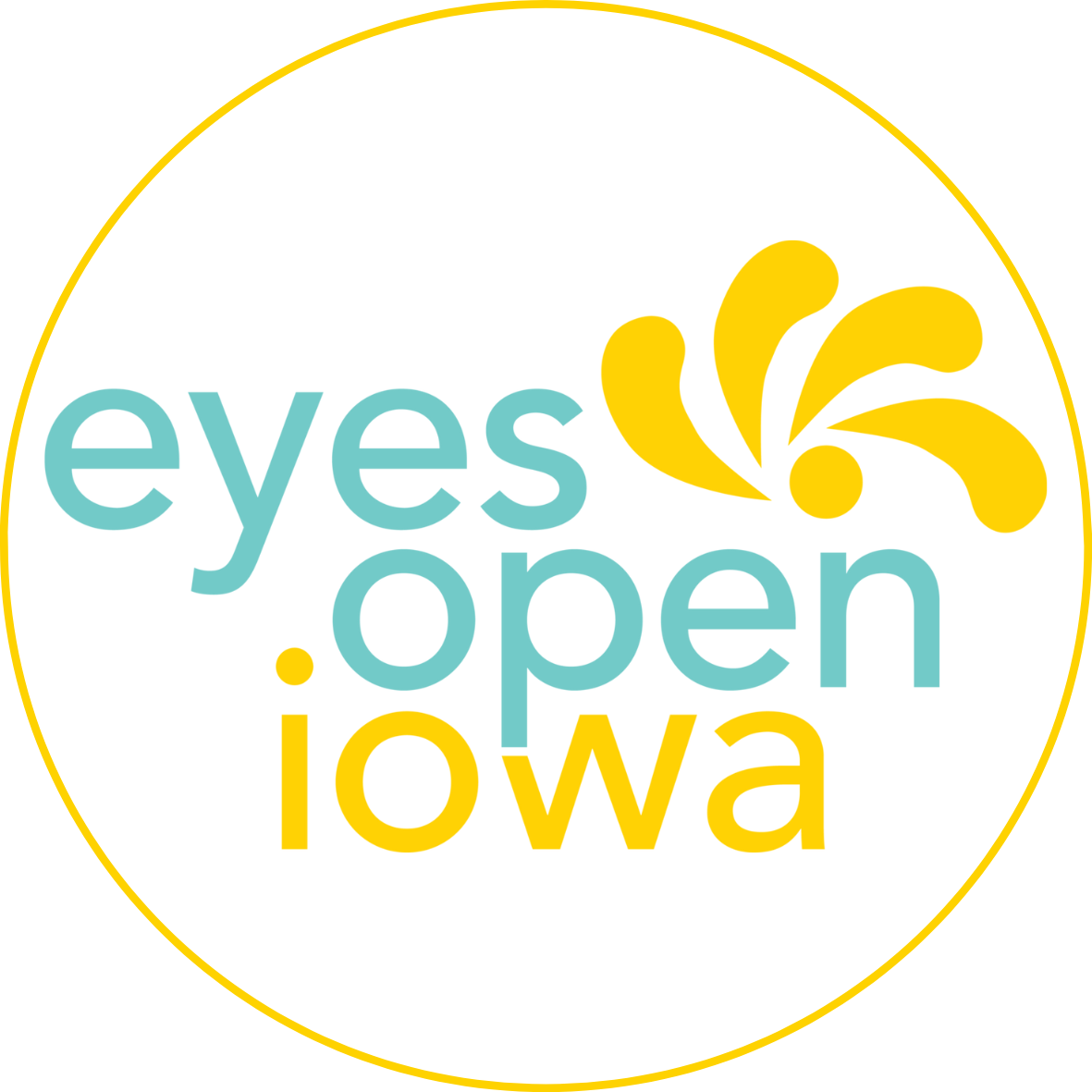Supporting Ourselves in a Post-Pandemic World
Supporting Ourselves in a Post-Pandemic World by: Gail Cowan
Gail Cowan, MSW, is EOI’s Director of Development. A former therapist, she also runs her own coaching business. Find her at www.gailcowan.com or gail@eyesopeniowa.org.
About a month ago, I took my son to an appointment at the local children’s hospital. Walking in, I noticed that the mandatory mask requirement was gone and thought, “Oh, okay, the pandemic must really be over.” And it seems that it is. The end came without a lot of fanfare – with mask mandates, local Covid rates, and just general talk about all of it fading quietly into the distance. Like a lot of phases during the intensity of the last three years, this ending came and went without any real collective acknowledgment. This may not be that big of a deal for most of us, except that a few weeks ago, I began noticing some changes in myself – increased anxiety, wanting to cry more often for no reason at all, heightened annoyance when one of my children asked me for something they could easily get themselves. After a couple of weeks of this, including a sinus infection that came out of nowhere, I began to ask: what *does* it look like when we come out of a global pandemic, during which we were all operating in a crisis mode of sorts for 2+ years? What I know from doing crisis work as a mental health practitioner is that in an emergency, the body operates largely on adrenaline – we do whatever is needed for as long as is necessary to survive. When the emergency is over, it is imperative that we make time for repair – to hold our nervous systems as they “come down” from the crisis state. Anyone who has done crisis work can tell you that this phase isn’t easy. When we are in crisis mode, there is no space to process the anxiety and grief that might result from what we are experiencing. It is only afterward, with the emergency in the rearview, that we are able to give space to our feelings. This isn’t usually an easy process. This is why the end of the pandemic going largely unnoted is so troubling. Many of us are walking around with increased anxiety, grief, irritation, and a lack of connection to joy – without knowing that it is because we are in the post-pandemic recovery phase. In this phase, we may feel worse before we feel better. One simple frame I use is the idea that when our bodies are in crisis mode, we must borrow energy from the future. So many of us were forced to expend energy we didn’t have during the pandemic – to care for kids and parents, to worry, to keep going. In order to expend energy we don’t have in any given moment, we must borrow it from the future. For many of us, now is the time that we must restore that deficit of energy. What this looks like in practical terms might be an increased feeling of fatigue for no obvious reason, a lack of interest or ability to find things that make us feel better or distract us, heightened grief and a host of other experiences. This is not a fun phase, and it’s made worse by the fact that we aren’t talking about it collectively. Here’s what can help:
● Have conversations with family, friends, and coworkers about how they are feeling. Many of us still feel overwhelmed but are too afraid to admit it.
● Acknowledging that we are in the recovery phase. This alone can be enough. When we feel agitated, tired, sad, and don’t know how to calm ourselves, saying to ourselves and others, “This is my body resetting and it’s okay” can be enormously helpful.
● Ask ourselves, “What do I need in recovery?” Less activity? Fewer expectations? Kinder self-talk? More sleep? Whatever it is, we each get to decide.
● Making space for our feelings. I like to think about movement – of any sort – as a helpful tool for releasing emotions. Movement can be exercise (walking, running, swimming), but it can also be crying, talking, laughing, shaking, or any other movement that lets us release emotions.
● Being kind to ourselves, and dialing things way, way back if need be. In recovery, we need to work less, not more. Many things can wait, but our health cannot.
This leads me to my last tip: during the pandemic, so many of us acted as caretakers. We had children at home, brought meals to parents, etc. I’m noticing in my own life and the lives of friends that we need to readjust these roles: ask, where can I return to encouraging the people in my life to rely on themselves instead of on me? These shifts take time, but they are important. The more we can talk about them and acknowledge that we all survived something incredibly hard, the better off we will be.
